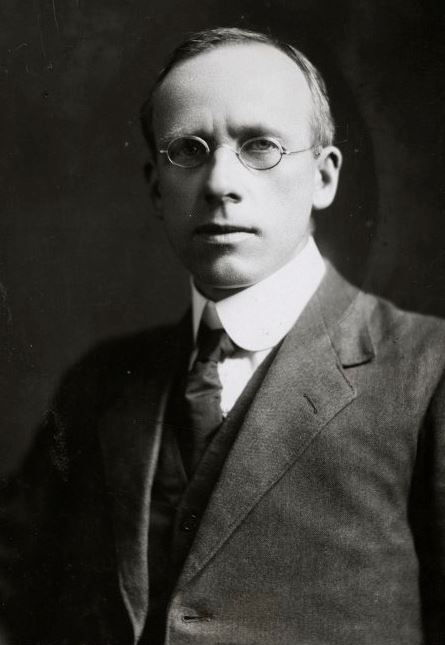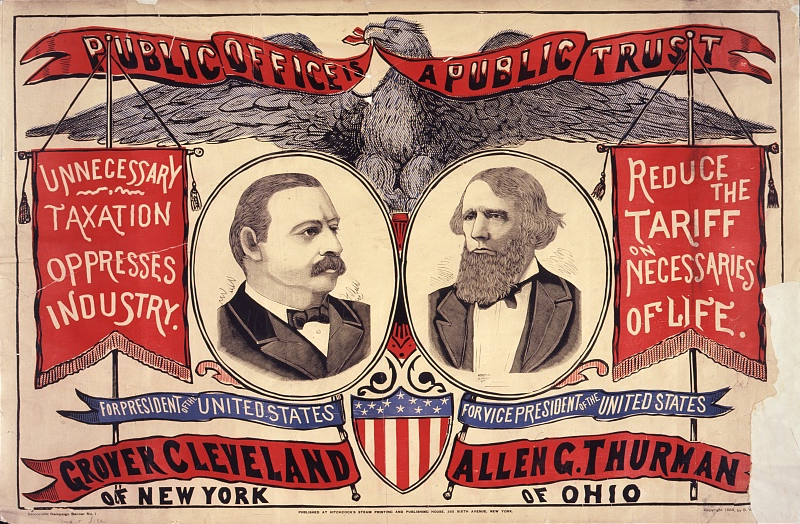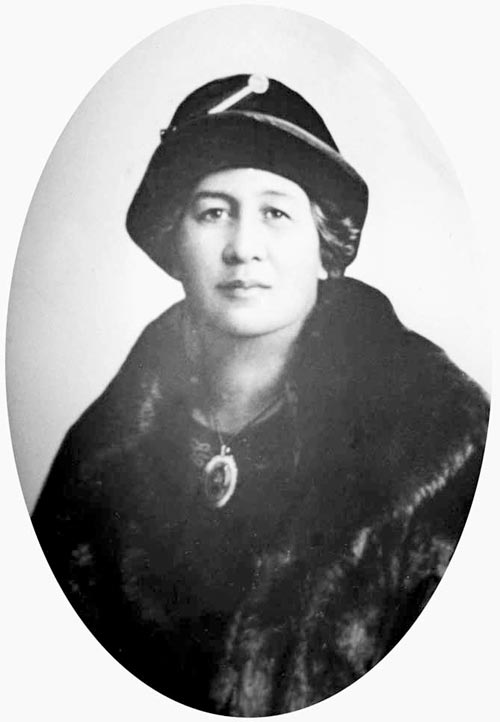|
Māori Trustee
The Māori Trustee is a statutory corporation sole with perpetual succession in New Zealand.Te Puni KōkiriMāori Trustee Position Description Last accessed 29 October 2022. They administer, as trustee or agent, Māori land trusts and other Māori entities. The Māori Trustee administers about 1,800 Māori land trusts, which is about one third of them. Māori land trusts are a type of legal governance structure by which multiple owners of Māori land can manage their land. Under any trust, whether a Māori land trust or a private family trust, one or more people – the "trustees" – are the legal owners of the land or other property, but they have a special obligation to look after this property on behalf of, and for the benefit of, some other person or people, called the "beneficiaries". With a Māori land trust, the trustees must manage the land for the benefit of all the owners of the land. The role of the Māori Trustee is to provide fair, proper, and prudent administrat ... [...More Info...] [...Related Items...] OR: [Wikipedia] [Google] [Baidu] |
Corporation Sole
A corporation sole is a legal entity consisting of a single ("sole") incorporated office, occupied by a single ("sole") natural person.Technical Manual Insolvencydirect.bis.gov.uk This structure allows corporations (often s or Commonwealth governments) to pass without interruption from one officeholder to the next, giving positions legal continuity with subsequent officeholders having identical powers and possessions to their predecessors. A corporation sole is one of two ty ... [...More Info...] [...Related Items...] OR: [Wikipedia] [Google] [Baidu] |
Gordon Coates
Joseph Gordon Coates (3 February 1878 – 27 May 1943) served as the 21st prime minister of New Zealand from 1925 to 1928. He was the third successive Reform prime minister since 1912. Born in rural Northland, Coates grew up on a cattle run and was bilingual in English and Te Reo Māori, the last New Zealand Prime Minister to be so. Coates took charge on the farm as a young age due to his father's mental illness, before becoming a Member of Parliament in 1911. He maintained a focus on farming issues and stood as an independent candidate. After distinguished service during World War I, he was appointed as Minister of Justice and Postmaster-General in the Reform government of William Massey (1919); he served as Minister of Public Works (1920–26) and Native Affairs (1921–28) and became prime minister in 1925 on Massey's death. Defeated in the elections of 1928, Coates returned to government in 1931 as the key figure in the coalition government of George Forbes. Serving as ... [...More Info...] [...Related Items...] OR: [Wikipedia] [Google] [Baidu] |
Perpetual Lease
A leasehold estate is an ownership of a temporary right to hold land or property in which a lessee or a tenant holds rights of real property by some form of title from a lessor or landlord. Although a tenant does hold rights to real property, a leasehold estate is typically considered personal property. Leasehold is a form of land tenure or property tenure where one party buys the right to occupy land or a building for a given length of time. As a lease is a legal estate, leasehold estate can be bought and sold on the open market. A leasehold thus differs from a freehold or fee simple where the ownership of a property is purchased outright and thereafter held for an indeterminate length of time, and also differs from a tenancy where a property is let (rented) on a periodic basis such as weekly or monthly. Terminology and types of leasehold vary from country to country. Sometimes, but not always, a residential tenancy under a lease agreement is colloquially known as renting. The l ... [...More Info...] [...Related Items...] OR: [Wikipedia] [Google] [Baidu] |
Peter Fraser
Peter Fraser (; 28 August 1884 – 12 December 1950) was a New Zealand politician who served as the 24th prime minister of New Zealand from 27 March 1940 until 13 December 1949. Considered a major figure in the history of the New Zealand Labour Party, he was in office longer than any other Labour prime minister, and is to date New Zealand's fourth- longest-serving head of government. Born and raised in the Scottish Highlands, Fraser left education early in order to support his family. While working in London in 1908, Fraser joined the Independent Labour Party, but unemployment led him to emigrate to New Zealand in 1910. On arrival in Auckland, he gained employment as a wharfie and became involved in union politics upon joining the New Zealand Socialist Party. In 1916, Fraser was involved in the foundation of the unified Labour Party. He spent one year in jail for sedition after speaking out against conscription during the First World War. In 1918, Fraser won a Wellington by ... [...More Info...] [...Related Items...] OR: [Wikipedia] [Google] [Baidu] |
Te Puni Kōkiri
Te Puni Kōkiri (TPK), the Ministry of Māori Development, is the principal policy advisor of the Government of New Zealand on Māori wellbeing and development. Te Puni Kōkiri was established under the Māori Development Act 1991 with responsibilities to promote Māori achievement in education, training and employment, health, and economic development; and monitor the provision of government services to Māori. The name means "a group moving forward together". History Protectorate Department (1840-1846) Te Puni Kōkiri, or the Ministry of Māori Development, traces its origins to the missionary-influenced Protectorate Department, which existed between 1840 and 1846. The Department was headed by the missionary and civil servant George Clarke, who held the position of Chief Protector. Its goal was to protect the rights of the Māori people in accordance with the Treaty of Waitangi. The Protectorate was also tasked with advising the Governor on matters relating to Māori and actin ... [...More Info...] [...Related Items...] OR: [Wikipedia] [Google] [Baidu] |
Public Trustee (New Zealand)
The concept of public trust relates back to the origins of democratic government and its seminal idea that within the public lies the true power and future of a society; therefore, whatever ''trust'' citizens place in its officials must be respected. One of the reasons that bribery is regarded as a notorious evil is that it contributes to a culture of political corruption in which public trust is eroded. Other issues related to political corruption or betrayal of public trust are lobbying, special interest groups and the public cartel. United States In the United States "Public Trust" is a term of art referring to any public property which belongs to the whole of the people. Initially it was used within the formation of the government to refer to politicians who achieve power by election. In the United States Constitution, all members of Congress as well as the President, and Vice President are elected seats therein. The first state constitution drafted in the United States was th ... [...More Info...] [...Related Items...] OR: [Wikipedia] [Google] [Baidu] |
Āpirana Ngata
Sir Āpirana Turupa Ngata (3 July 1874 – 14 July 1950) was a prominent New Zealand statesman. He has often been described as the foremost Māori politician to have served in Parliament in the mid-20th century, and is also known for his work in promoting and protecting Māori culture and language. Ngata practiced as a lawyer before entering politics in 1897, when he established the Young Māori Party alongside numerous alumni of Te Aute College, including future fellow cabinet minister Māui Pōmare. Here he challenged the traditional views of his people, advocating the abandonment of some traditional practices and customary healing in favour of science and Pākehā-style sanitation, which made him a controversial figure. In 1905, he was elected the Liberal Member of Parliament (MP) for Eastern Maori, retaining this seat for nearly 40 years. He served in government as Minister of Native Affairs from 1928 to 1934. In this he tried to accomplish as many reforms for Māori as ... [...More Info...] [...Related Items...] OR: [Wikipedia] [Google] [Baidu] |
The Encyclopedia Of New Zealand
''Te Ara: The Encyclopedia of New Zealand'' is an online encyclopedia established in 2001 by the New Zealand Government's Ministry for Culture and Heritage. The web-based content was developed in stages over the next several years; the first sections were published in 2005, and the last in 2014 marking its completion. ''Te Ara'' means "the pathway" in the Māori language, and contains over three million words in articles from over 450 authors. Over 30,000 images and video clips are included from thousands of contributors. History New Zealand's first recognisable encyclopedia was ''The Cyclopedia of New Zealand'', a commercial venture compiled and published between 1897 and 1908 in which businesses or people usually paid to be covered. In 1966 the New Zealand Government published ''An Encyclopaedia of New Zealand'', its first official encyclopedia, in three volumes. Although now superseded by ''Te Ara'', its historical importance led to its inclusion as a separate digital reso ... [...More Info...] [...Related Items...] OR: [Wikipedia] [Google] [Baidu] |
William Herries
Sir William Herbert Herries (19 April 1859 – 22 February 1923) was an English-born New Zealand politician. Biography Herries was born in London, the son of Herbert Crompton Herries, a barrister, and his wife, Leonora Emma Wickham. His grandfather was Henry Lewis Wickham, a Receiver General of Gibraltar. The English MP William Wickham was his uncle. From a wealthy middle-class family, he was educated at Eton College and Trinity College, Cambridge, where he studied natural sciences. At the age of 22 he emigrated to New Zealand and became a farmer near Te Aroha, with a passion for racing and breeding horses. On 4 December 1889, he married his neighbour Catherine Louisa Roche; they remained without children. Herries was elected to the House of Representatives for the Bay of Plenty electorate in 1896, holding the seat until 1908, when he was elected for Tauranga, which he held until his death. He became a member of the Reform Party, which formed in 1909. The ... [...More Info...] [...Related Items...] OR: [Wikipedia] [Google] [Baidu] |
Treaty Of Waitangi
The Treaty of Waitangi ( mi, Te Tiriti o Waitangi) is a document of central importance to the history, to the political constitution of the state, and to the national mythos of New Zealand. It has played a major role in the treatment of the Māori population in New Zealand, by successive governments and the wider population, a role that has been especially prominent from the late 20th century. The treaty document is an agreement, not a treaty as recognised in international law and it has no independent legal status, being legally effective only to the extent it is recognised in various statutes. It was first signed on 6 February 1840 by Captain William Hobson as consul for the British Crown and by Māori chiefs () from the North Island of New Zealand. The treaty was written at a time when the New Zealand Company, acting on behalf of large numbers of settlers and would-be settlers, were establishing a colony in New Zealand, and when some Māori leaders had petitioned the Briti ... [...More Info...] [...Related Items...] OR: [Wikipedia] [Google] [Baidu] |
Perpetual Succession
In company law, perpetual succession is the continuation of a corporation's or other organization's existence despite the death, bankruptcy, insanity, change in membership or an exit from the business of any owner or member, or any transfer of stock, etc. Perpetual succession, along with the common seal, is one of the factors explaining a corporation's legal existence as separate from those of its owners. This principle states that: *any change in membership of a company does not affect the status of the company, *death, insolvency, insanity etc. of any member of a company does not affect the continuity of the company. Thus the life of the company does not depend upon the life of its members. *it shall continue forever irrespective of continuity of its members or directors, except in case of liquidation Liquidation is the process in accounting by which a company is brought to an end in Canada, United Kingdom, United States, Ireland, Australia, New Zealand, Italy, and many ... [...More Info...] [...Related Items...] OR: [Wikipedia] [Google] [Baidu] |
Whenua
In New Zealand, tangata whenua () is a Māori language, Māori term that literally means "people of the land". It can refer to either a specific group of people with historical claims to a district, or more broadly the Māori people as a whole. Etymology According to Williams' definitive ''Dictionary of the Māori Language'', ''tangata'' means "man" or "human being", whilst ''tāngata'' (with the macronated "ā") is the plural, and means "people". ''Tangata''—without the macron—can also mean "people" in reference to a group with a singular identity. ''Whenua'' means both "land" and "placenta" (again referencing Williams, who lists five definitions). It is an ancient Austronesian languages, Austronesian word with cognates across the Malayo-Polynesian world, from Malay language, Malay ''benua'' (now meaning "continent"), Visayan language, Visayan *''banwa'' and to Rapa Nui language, Rapa Nui ''henua''; ultimately from Proto-Austronesian language, Proto-Austronesian *''banua''. ... [...More Info...] [...Related Items...] OR: [Wikipedia] [Google] [Baidu] |





